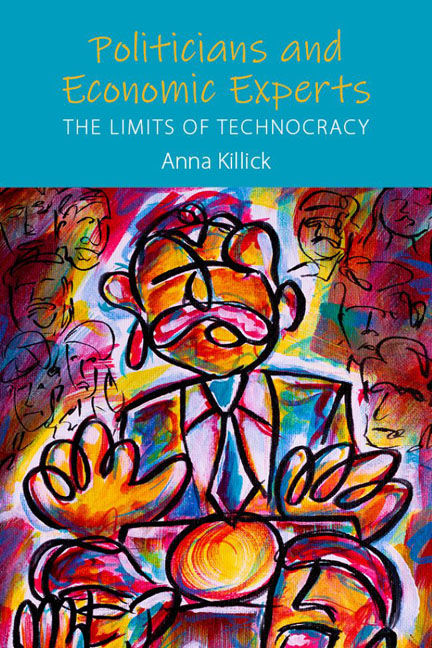Part I - Politicians’ Respect for Economists and Voters
Published online by Cambridge University Press: 20 January 2024
Summary
This book is based on interviews with 85 elected politicians from across the political spectrum, with some under-representation on the part of some far-right parties, who resisted being interviewed. The politicians either have economic front-bench responsibilities, whether in government or opposition, or economic committee membership, so are predisposed to be interested in economic issues. In addition, I interviewed 14 partisan economic advisers or economists attached to committees. I chose to interview some advisers to triangulate what politicians said, but my main aim was to ascertain the politician perspective. As the interviews are confidential, throughout the book I give brief details of who is being quoted, such as “German CDU/ CSU1 politician”, or “former British Conservative minister”.
At the research design and interviewing stage I kept an open mind about how far politicians might share attitudes to economists and voters and how far they might diverge, and, if so, whether in national or ideological directions. By the end of the study I was struck by how much elected politicians had in common, more than might have been expected. Therefore, Part I of the book starts with what most of the politicians seemed to share.
In Chapter 1 I set out why it is important to research politicians’ perspectives on economic policy-making given that many commentators, increasingly including progressive ones, do not believe that politicians can solve the complex economic problems we face and call for a “new technocracy”. In Chapter 2 my focus is on what politicians share in their attitudes to economists. In Chapter 3 I turn to the second area where politicians share a common approach: their attitudes to voters and the economy.
- Type
- Chapter
- Information
- Politicians and Economic ExpertsThe Limits of Technocracy, pp. 13 - 14Publisher: Agenda PublishingPrint publication year: 2022



